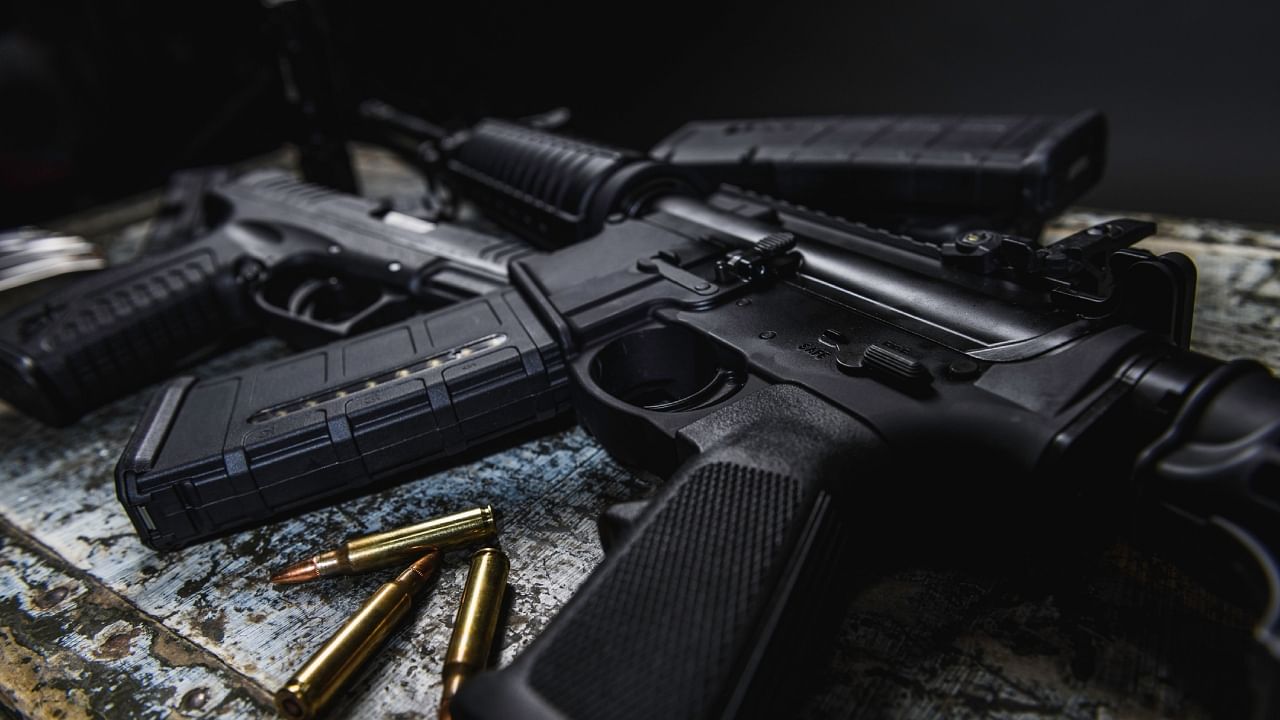
The Transportation Security Administration intercepted a record number of guns at airport security checkpoints this year, the agency said Friday, prompting it to increase the maximum fine for firearm violations. The move comes amid surges in air travel and gun sales across the country.
The agency said that it had stopped 6,301 guns — more than 88 per cent of which were loaded — from passing beyond security checkpoints. By the end of the year the administration expects to have intercepted about 6,600 guns in carry-on bags, a 10 per cent increase over the previous record of 5,972, set in 2021.
Officials increased the maximum fine for a firearms violation by nearly $1,000, to $14,950, “in order to reduce the threat of firearms at checkpoints,” the agency said in a news release.
“When a passenger brings a firearm to the checkpoint, this consumes significant security resources and poses a potential threat to transportation security, in addition to being very costly for the passenger,” the TSA administrator, David Pekoske, said in a statement.
The announcement came about three months after the agency said that it was on pace to break the record once again, as air travel in the United States neared pre-pandemic levels.
Besides a drop in 2020, when travelers stayed home amid pandemic lockdowns, the number of firearm interceptions by the TSA has steadily increased each year since 2010.
Passengers are allowed to bring guns in checked baggage, so long as the weapons are unloaded and locked in a hard-sided container. Passengers must also declare guns at the check-in counter. But guns are not allowed in carry-on bags at any TSA checkpoint, even if a passenger has a concealed weapon permit.
That distinction may be behind the thousands of mishaps in recent years, some experts say. Travelers may be unfamiliar with the rules for bringing firearms on planes, especially if they have not traveled since the start of the pandemic, said Sheldon H. Jacobson, a professor of computer science at the University of Illinois Urbana-Champaign and an expert on aviation security.
“The majority of people are not doing it with malicious intent,” Jacobson said. “They’re simply forgetting.”
TSA spokesperson David Fitz said in a statement that “the most common reason given by passengers bringing a firearm into a checkpoint is ‘I forgot it was in the bag’ or ‘Someone else packed my bag for me.’”
The increase in gun sales in the country in recent years, particularly among first-time gun owners, could help explain the rise, Jacobson added.
While gun interceptions have increased nationwide, Fitz said, the trend was particularly notable in “parts of the country where open carry and concealed weapons permits are higher,” especially in Southern states.
As for how many guns made it through airport security, the TSA did not immediately respond to a question on that matter. But a 2020 study by Jacobson estimated that several hundred guns made it past TSA checkpoints.
A number of these breaches made the news in recent years. In January 2019, a Delta Air Lines passenger accidentally carried a loaded gun through a security checkpoint at Hartsfield-Jackson Atlanta International Airport, TSA officials said at the time. The passenger later discovered the firearm and alerted authorities, who met the plane when it landed in Japan, according to officials.
In 2017, a shooting at an airport in Fort Lauderdale, Florida, raised concerns about the presence of guns at airports. A gunman retrieved a weapon from his checked bag, opened fire and killed five people.
Last year, a firearm was accidentally discharged during a security check at Atlanta’s international airport. When a TSA officer opened a bag to examine what X-ray machines had identified as a suspicious item, a man lunged into the bag and grabbed a firearm, which then discharged, officials said.
And this spring, Rep. Madison Cawthorn, R-N.C., was briefly detained by police after trying to bring a loaded gun through airport security in Charlotte, North Carolina — the second time in a little over a year that he had been found with a gun at an airport checkpoint.
When a gun is found at a checkpoint, the TSA does not seize it. Instead, agents are instructed to call law enforcement to handle the situation and confiscate the weapon. There is no federal criminal penalty for passengers caught with a gun at a checkpoint, but the TSA can impose a fine.
Jacobson said an increase in that fine would not solve the problem because “if someone has forgotten that they have a gun with them, then why would deterrence make a difference?”
“It’s not the item that’s the problem,” he added. “It’s the people and the intent of the person with the gun.”
At a congressional hearing this year, lawmakers and airport officials debated how to approach the issue.
Jason Wallis, president of the Airport Law Enforcement Agencies Network and police chief of the Port of Portland in Oregon, said at the hearing that he supported increased fines because “the maximum fine is rarely, if ever, imposed and clearly not serving as a deterrent.”
“I believe the TSA and Congress should consider significantly raising the civil penalties imposed to make an actual impact,” he said.
Balram Bheodari, general manager of Hartsfield-Jackson Atlanta International Airport, also supported increased fines at the hearing and made other recommendations, including requiring violators to attend gun safety training.
“Clearly, this is an issue that needs to be addressed nationwide,” he said.